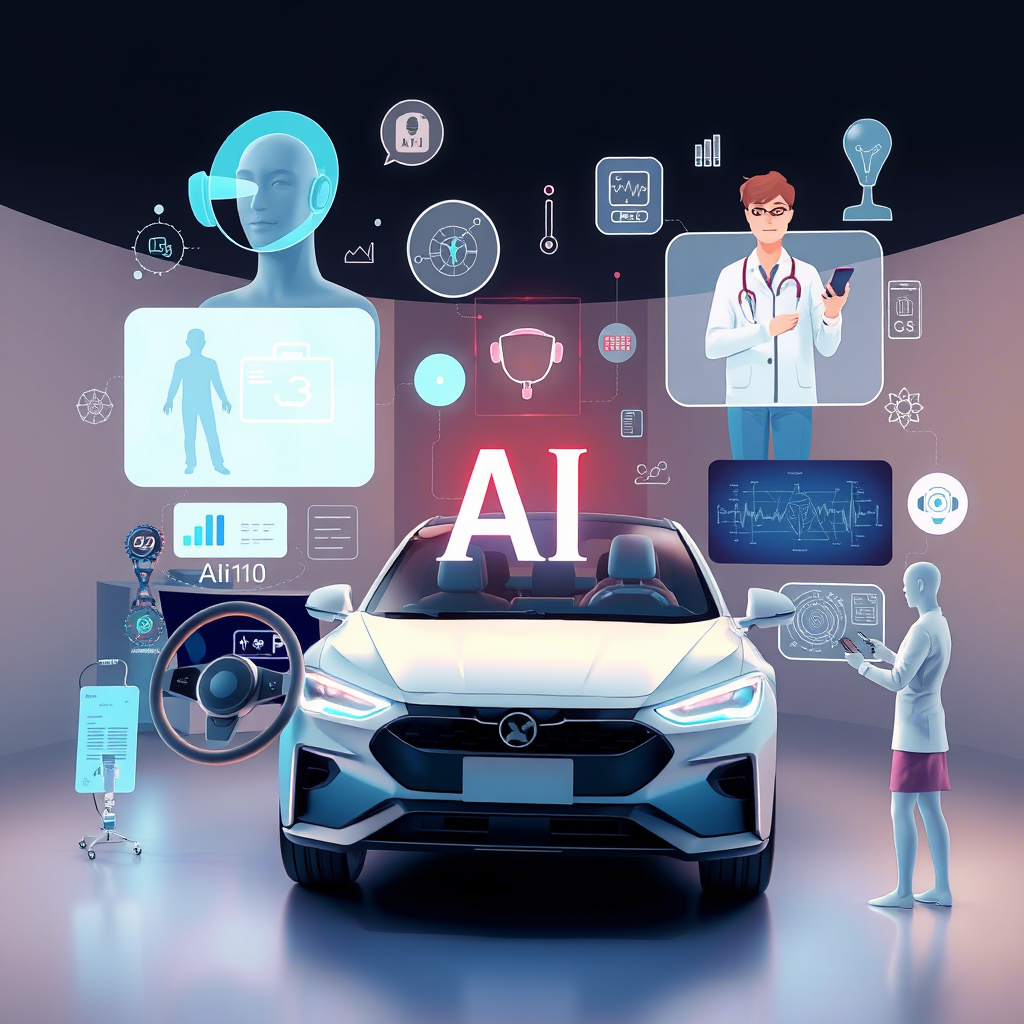Learn how AI transforms industries from healthcare and finance to entertainment and transportation, and discover real-world examples that showcase AI’s potential.

Learn how AI transforms industries from healthcare and finance to entertainment and transportation, and discover real-world examples that showcase AI’s potential.
Artificial Intelligence (AI) has evolved from a niche research area into a transformative technology affecting nearly every industry. Its ability to analyze massive amounts of data, automate processes, and learn from experience makes it a powerful tool for solving complex challenges and creating new opportunities. In this article, we’ll explore various applications of AI, discussing how it is being used in healthcare, finance, transportation, retail, entertainment, manufacturing, and more. Real-world examples and emerging trends illustrate AI’s potential to revolutionize the way we live and work.
AI is not confined to one sector; its applications are broad and diverse. Key domains include:
Artificial Intelligence is a transformative technology with applications across nearly every sector—from healthcare and finance to transportation, retail, and beyond. By automating processes, providing deep insights from data, and enabling personalized experiences, AI is reshaping how we live and work. Despite challenges such as bias, privacy, and ethical dilemmas, the continued evolution of AI promises to drive innovation and efficiency, ultimately creating a smarter, more connected world.
AI Index Report by Stanford
aiindex.stanford.edu – Annual report tracking global AI progress and trends.
MIT Artificial Intelligence Laboratory
csail.mit.edu – Explore research, projects, and breakthroughs in AI.
Google AI Blog
ai.googleblog.com – Insights, case studies, and news on Google’s AI initiatives.
OpenAI
openai.com – Learn about cutting-edge AI research and applications.
TensorFlow
tensorflow.org – Tutorials and documentation on building AI models.
PyTorch
pytorch.org – Comprehensive guides and community support for deep learning.
Cryptocurrency is a form of digital money that operates on decentralized networks using blockchain technology. Unlike traditional currencies, it isn’t controlled by banks or governments. Transactions are verified by network participants and secured through cryptography. Popular examples include Bitcoin and Ethereum. Cryptocurrencies offer faster, more secure payments and give users greater control over their finances …
Cryptocurrency is a form of digital money that operates on decentralized networks using blockchain technology. Unlike traditional currencies, it isn’t controlled by banks or governments. Transactions are verified by network participants and secured through cryptography. Popular examples include Bitcoin and Ethereum. Cryptocurrencies offer faster, more secure payments and give users greater control over their finances …
Cryptocurrency is a form of digital money that operates on decentralized networks using blockchain technology. Unlike traditional currencies, it isn’t controlled by banks or governments. Transactions are verified by network participants and secured through cryptography. Popular examples include Bitcoin and Ethereum. Cryptocurrencies offer faster, more secure payments and give users greater control over their finances …
Cryptocurrency is a form of digital money that operates on decentralized networks using blockchain technology. Unlike traditional currencies, it isn’t controlled by banks or governments. Transactions are verified by network participants and secured through cryptography. Popular examples include Bitcoin and Ethereum. Cryptocurrencies offer faster, more secure payments and give users greater control over their finances …